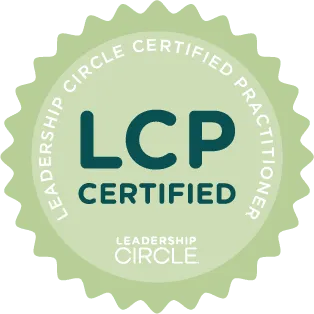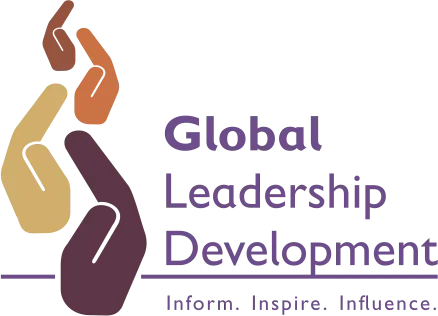Hello, I am Dr. Faith
Hello, I am Dr Faith Ngunjiri, a leadership coach, author, speaker and trainer. My goal is to help you become a better leader. I work with leaders through training programs, one on one coaching, masterclasses, workshops, and seminars.
Learn more about me here.
My leadership academies provide virtual training on topics such as emotional intelligence, assertive communication, harnessing leadership potential, and self-leadership mastery.

Global Leadership Development, LLC is a company committed to the growth of leaders. Our goal is to help you become a better, more authentic, more ethical leader.

Leadership Circle Profile Assessment
Integrating the Field of Leadership with the most comprehensive 360° Leadership Assessment.
The Leadership Circle Profile™ (LCP) provides a detailed snapshot in time, enabling leaders to answer the question: “How are my behaviors and mindset enabling or constraining my intended leadership impact and our business performance?”
Introducing Global Leadership Development, LLC
Having spent the past 20 years as a leadership educator, scholar, speaker, author and coach, I am excited to curate and facilitate courses outside of the university setting for women desiring to become better leaders.

Reinventing your Purpose
In reinventing your purpose, you would be reevaluating, redefining, and reorienting your life goals, passions, and aspirations, particularly during a transitional phase or a period of dissatisfaction.

Renewing your Spirit
We all need to engage in renewing our spirits by revitalizing and reconnecting with your inner self, belief system, or sense of meaning in life. This journey often involves introspection, self-discovery, and practices.

Growing in Emotional Intelligence
Emotional intelligence includes self-awareness, self-mastery, social awareness, and relationship management. We improve through reassessing and recalibrating one’s emotional well-being, attitudes, and responses to various life situations. T.

Reimagine Resiliency
To reimagine resiliency involves reevaluating and redefining one’s capacity to adapt, recover, and grow in the face of adversity, challenges, and setbacks. It involves recognizing the transformative potential of difficult experiences.

Reinvigorate your Leadership
Leaders need to be always learning, by revitalizing, re-energizing, and renewing their leadership approach. It is essential for leaders to continuously grow, adapt to new challenges with their teams or organizations.

LEADERSHIP ACADEMY
In order to support you in your journey of growth as a resilient, adaptable, emotionally intelligent, spiritually renewed leader, our leadership academy offers on-demand, virtual, self-guided courses. Sign up, invest in your growth and development.
My Thoughts
Read writings from Dr Faith Wambura Ngunjiri; an educator, professor, leadership coach, mental health advocate, solo mama, of African ascent on workplace, leadership and more.

Why Leaders Need to be Emotionally Intelligent

As I get opportunities for speaking engagements, one of my favorite topics to engage with leaders is emotional intelligence (EI). It is such an important concept, or better yet, competency, for leaders to embody. I love the topic so much, that I have enrolled for training to become a Genos Emotional Intelligence Certified Practitioner, where I will be able to use the Genos EI Assessment in my leadership coaching and training work.
Emotional intelligence may be defined slightly differently depending on which authors you are reading, but essentially, it has to do with awareness and management of ones own emotions, as well as emotional social awareness coupled with managing relationships. Leaders who are high on emotional intelligence are better able to manage their own emotional states, navigate through challenging times with resiliency, manage conflict effectively, motivate themselves and others. Let’s look further into why emotional intelligence matters for leader effectiveness.
Benefits of EI for Leaders
Emotional intelligence (EI) is critical for leadership due to several key factors:
1. Demonstrating Empathy and Understanding:
Leaders with high EI can empathize with their team members, understanding their emotions, motivations, and concerns. With this knowledge, they are better able to foster a supportive and inclusive work environment, enhancing team cohesion and morale.
2. Communicating Effectively:
EI enables leaders to communicate more effectively. They can convey their messages clearly and listen actively, ensuring that all team members feel heard and valued. They can read the room while they are engaging to gauge whether they are being received as intended, or perhaps their jokes are falling flat…
3. Resolving Conflict:
Leaders with strong EI are adept at managing and resolving conflicts. They can navigate emotionally charged situations with calmness and fairness, maintaining harmony within the team.
4. Adaptability:
Emotionally intelligent leaders are more adaptable to change. They can manage their own emotions and help their team navigate through transitions and uncertainties, maintaining stability and productivity.
5. Building Trust
EI helps leaders build trust with their team. By being authentic, transparent, and consistent in their actions, they create a reliable and trustworthy leadership presence. Without trust, leaders would have a very difficult time leading their constituents.
6. Motivation and Inspiration
Leaders with high EI can inspire and motivate their teams. They understand what drives their team members and can align their goals with the organization's vision, fostering a sense of purpose and commitment. Subordinates and followers want to know that their leaders and managers are invested in their success and wellbeing.
7. Self-Regulation
EI involves self-awareness and self-regulation. Leaders who can manage their own emotions are better equipped to handle stress, make rational decisions, and set a positive example for their team. As we know, stakeholders —whether they are employees, suppliers, or board members, observe and are influenced by the actions and behaviors of their leaders. A leader who is unable to self-regulate, not able to manage their own negative emotions, would end up creating a toxic work environment.
In essence, emotional intelligence bridges the gap between subjective experiences and objective leadership principles, creating a balanced and effective leadership approach that enhances both individual and organizational success.

How to Enhance Your EI
Developing emotional intelligence (EI) is a journey of transformation that involves enhancing self-awareness, self-regulation, social awareness, and relationship management - the four domains of EI per Daniel Goleman. Let’s look at some suggestions for enhancing your EI.
1. Self-Awareness:
Do a 360 emotional intelligence assessment, which enables you to gain deeper awareness and understanding of not only how you perceive your own EI, but also how others within your sphere of influence – supervisors, peers, subordinates, perceive your EI too. This is the best and I dare say, most accurate way to assess the state of your EI. Other suggestions include:
Reflect on Emotions: Regularly take time to reflect on your emotions and understand what triggers them. Try writing down your thoughts about your emotional reactions and responses, taking stock of your triggers and digging into why.
Mindfulness Practices: Engage in mindfulness or meditation practices to become more attuned to your emotional states.
Seek Feedback: Ask for feedback from trusted colleagues or friends to gain insights into how your emotions and behaviors are perceived by others. As mentioned, the 360 assessments are a particularly effective way to receive feedback…
2. Self-Regulation:
Pause Before Reacting: Practice pausing before responding to emotional triggers. This helps in managing impulsive reactions. That whole ‘count to ten’ that our parents used to teach us, works for adults too. Creating a space between stimulus and response gives you a chance to respond more appropriately.
Stress Management Techniques: Learn and apply stress management techniques such as deep breathing, exercise, or engaging in hobbies.
Set Goals: Establish personal goals for emotional regulation and track your progress over time. Should you notice weaknesses in your emotional regulation, reach out to a coach, a therapist or even a mentor for support.
3. Social Awareness:
Active Listening: Practice active listening by fully concentrating, understanding, and responding thoughtfully to others. By paying attention and keeping eye contact, you become more adept at reading others emotions.
Empathy Exercises: Put yourself in others' shoes to understand their perspectives and feelings. This can be done through role-playing or reflective conversations.
Observe Non-Verbal Cues: Pay attention to body language, facial expressions, and tone of voice to better understand others' emotions.
4. Relationship Management:
Effective Communication: Develop clear and assertive communication skills. Practice expressing your thoughts and feelings respectfully.
Conflict Resolution: Learn and apply conflict resolution strategies. Focus on finding mutually beneficial solutions and maintaining positive relationships.
Build Trust: Consistently demonstrate reliability, honesty, and integrity to build and maintain trust in your relationships.
5. Continuous Learning:
Educational Resources: Read books, attend workshops, or take courses on emotional intelligence and related topics.
Mentorship and Coaching: Seek guidance from mentors or coaches who can provide personalized feedback and support your development journey.
Practice and Reflect: Regularly practice EI skills in real-life situations and reflect on your experiences to identify areas for improvement.
By integrating these practices into your daily life, you can progressively enhance your emotional intelligence, leading to more effective leadership, improved relationships, and greater personal well-being. I know for a fact that, my above average EI has enabled me to navigate the past few years that were full of struggles and treacherous terrains with humor and grace. I cannot overemphasize the need for enhanching your EI, it truly can make the difference between success and failure in your leadership journey, because as leaders, we work with and through people. Higher EI enables us to lead ourselves, and to lead others more effectively. Reach out for more information on my leadership coaching, which includes leadership and EI 360 assessments.
Join Mailing List
I agree to terms & conditions provided by the company. By providing my phone number, I agree to receive text messages from the business.
Copyright 2023 Faith Ngunjiri, Ed.D

